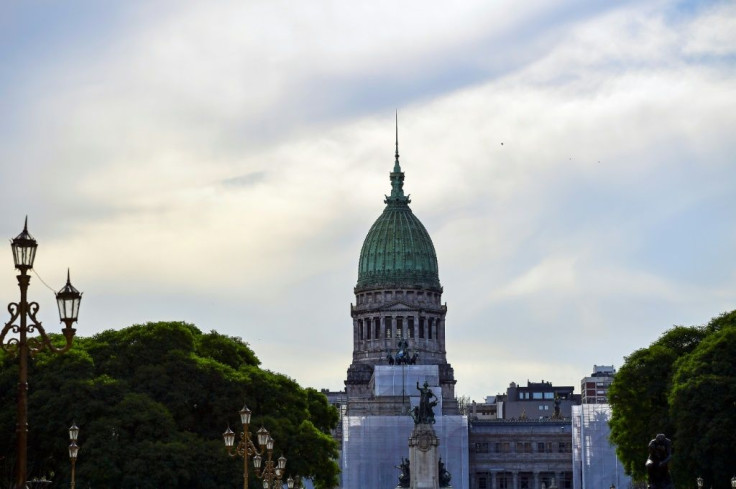Fernandez's Economic Emergency Plan Passes Argentina's Lower House

New Argentina President Alberto Fernandez's economic reform plan passed the lower house of parliament on Friday after it voted to declare an economic emergency in the South American country.
The bill will now face a vote in the Senate, which like the Chamber of Deputies is dominated by Fernandez's ruling coalition.
"Six out of every 10 Argentine children live in poverty, we can't lose any more time," said Eduardo Bucca, a lawmaker from the ruling coalition.
Poverty is near 40 percent in Argentina, which is in recession and has suffered 18 months of economic crisis sparked by a currency crash.
Its economy is expected to shrink by 3.1 percent in 2019, inflation is hovering around 55 percent, external debt is about 90 percent of GDP and unemployment is rising to 10.5 percent.
Fernandez's plan involves tax hikes -- on foreign currency purchases, agricultural exports and car sales -- that have proved highly unpopular in some quarters, leading hundreds of people to protest outside Congress on Wednesday.
"Concentrating so much power in the government is the wrong path and there's no justification for this emergency," said Mario Negri, an opposition lawmaker.
In announcing the reform plan earlier in the week, Economy Minister Martin Guzman said the measures seek to "protect sectors that are highly vulnerable."
The measures included a six-month freeze on public utility prices and 10,000 peso ($160) bonus for pensioners.
The law was passed with 134 votes for and 110 against.
dm/gma/bc/jm
© Copyright AFP {{Year}}. All rights reserved.





















